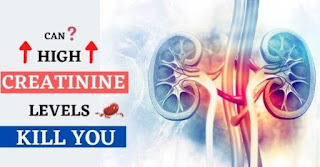What is IgA nephropathy?
IgA nephropathy is a kidney-related disorder in which an antibody called IgA builds up in the parts of the kidneys. It is a form of chronic kidney disease that generally progresses over the years, likely around 15 years. This IgA accumulation may cause inflammation resulted in impaired kidney function over time. IgA nephropathy hampers the kidney’s ability to filter the waste and other substances from the blood.
IgA nephropathy involves the following:
- Blood and protein in the urine (hematuria and proteinuria)
Swelling in the hands, legs, and feet (edema) - IgA nephropathy generally begins in the filters (glomeruli) in the kidneys. Glomeruli and tubules together make up nephrons, which are the tiny blood vessels in the kidneys.
There is no exact cure for IgA nephropathy, IgA nephropathy treatment in Ayurveda can help slow down the progression of IgA into end-stage renal disease.
What Causes IgA nephropathy?
According to scientists, IgA nephropathy is an autoimmune kidney disease. The faults in the autoimmune system allow IgA to buildup in the glomeruli.
Those who have IgA nephropathy have an increased blood level of IgA but too little galactose. This deficiency is not recognized by the other antibodies in the blood. As a result, other antibodies in the blood may attach themselves to galactose-deficient IgA and forms a clump. This structure is called an immune complex.
During IgA nephropathy, these clumps may stick to the glomerulus and inflame the filters gradually.
For some people, IgA nephropathy is also a genetic condition that runs in the family lines.
Rarely, IgA nephropathy can be due to respiratory or intestinal infections and how the body responds to these infections.
To these infections
Other causes of IgA nephropathy include:
- Liver diseases. IgA nephropathy could be a result of liver cirrhosis, a condition in which scar tissue replaces healthy tissues within the liver.
- Celiac disease. Eating a diet rich in gluten can trigger the digestive system.
- Infections. These include HIV and the infections caused by bacteria.
- Infections. These include HIV and some bacterial infections.
Risk factors
There is no exact cause of IgA nephropathy but many. Some of the factors that likely increase the risk of IgA nephropathy include:
Sex. Twice as many men are likely to have IgA nephropathy.
Age. IgA nephropathy most often occurs in people in their late 30s.
What Are The Complications of IgA nephropathy?
How IgA nephropathy affects different individuals may vary. While some people may have signs and symptoms for years, some people may experience complete remission with no severe complications. Many cases remain undiagnosed for years though all need IgA nephropathy treatment in Ayurveda.
Still, some of the people may experience morbidities, such as:
High blood pressure. Damage to the kidneys due to IgA buildup can primarily raise blood pressure. This happens due to reduced kidney function allowing fluid to submit to the cells and tissues.
Swelling. A condition called edema is often common in people with compromised kidney function. Swelling can be seen in the lower extremities, such as around hands, legs, feet, eyes, and face.
- High cholesterol. High levels of cholesterol can put pressure on the heart.
- Acute kidney failure. If your kidneys fail to perform their work, waste products may buildup causing acute renal failure.
- Chronic kidney disease. IgA nephropathy can result in gradual loss of kidney function.
- Nephrotic syndrome. It is a group of symptoms that may denote high urine protein, low blood protein, and high cholesterol and lipids.
What are the signs and symptoms of IgA nephropathy?
In the early stages of IgA nephropathy, you may or may not experience any signs. If the symptoms do appear, they are mostly related to blood and protein in the urine.
Blood in the urine may appear after a respiratory infection. This is called hematuria. Blood in the urine is sometimes visible with the naked eye, making the urine red or dark-colored.
Another symptom may include albuminuria, which is the urine protein. An increased amount of albumin in the urine makes it foamy or frothy.
When the albumin leaks into the urine, the blood’s efficiency in absorbing extra fluid impairs. Too much fluid in the body may cause swelling in the body and weight gain.
After 10 to 15 years, people with IgA nephropathy may develop end-stage renal disease. The signs and symptoms of ESRD are as follow:
- high blood pressure
- little or no urination
- edema or swelling
- feeling tired
- drowsiness
- generalized itching or numbness
- dry skin
- headaches
- weight loss
- appetite loss
- nausea
- vomiting
- sleep problems
- trouble concentrating
- muscle cramps
- malnutrition
- anemia
When to see a doctor
Consult your doctor if you are experiencing the signs and symptoms linked to kidney disease. If your doctor diagnoses with CKD, seek a cure for IgA nephropathy in Ayurveda.
Ayurvedic treatment
For IgA nephropathy, there is only Ayurveda that can help with the signs and symptoms. Ayurveda works on the root cause of the problem, be it genetic factors or infections. As in common knowledge, the ayurvedic treatment also helps to strengthen the kidneys and their parts for a better filtration process.
Basically, this treatment is the best for conditions like IgA nephropathy.


Very Helpful post! thank u sharing such a information.
ReplyDeleteIgA kidney disease treatment